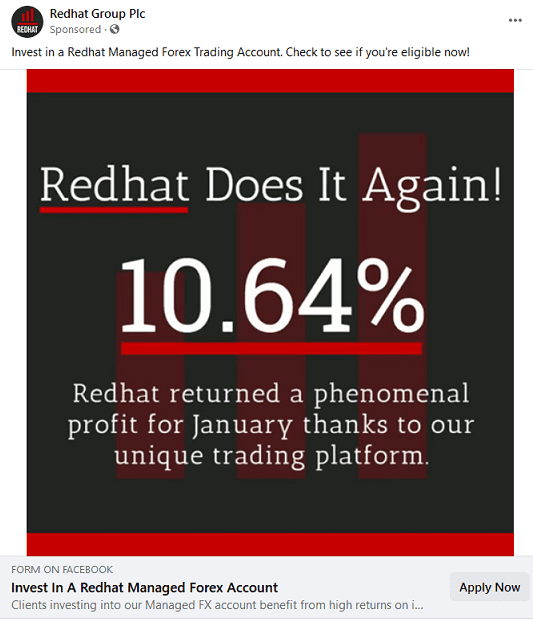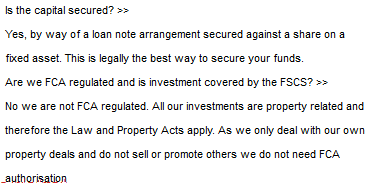The administrators of collapsed cryptocurrency bond scheme Viderium have released their initial report.
According to the report, a potted history of Viderium is as follows:
- Viderium raised a total of £4.1 million in its bonds starting in February 2018.
- £940,000 was invested in cryptocurrency mining machines, which were mostly deployed in Riga, Latvia and Rotterdam, Netherlands in summer 2018.
- What was done with the other £3 million of investors’ money is not elaborated on in the report.
- Until the cryptocurrency crash in late 2018, the company was apparently making revenue of $10,000 per day. With $1 worth about 75p at the time, that would have translated into about £2.7 million a year – which is pretty much exactly what Viderium were targeting in year 1 according to its investment brochure.
- However, after the cryptocurrency market crashed, revenue dropped to $1,000 a day. The administrators are presumably referring to the crash of late 2018 when Bitcoin crashed from ~£5,000 in November 2018 to ~£2,700 in December 2018. It can’t be the crash of early 2018 when Bitcoin crashed from ~£12,500 to ~£5,000, because that had already happened when Viderium raised the bulk of its funds and deployed its mining machines.
- If anyone’s wondering how a halving of the Bitcoin price translates into a literal decimation of Viderium’s revenue, I assume it’s because Viderium was mining cryptos other than Bitcoin. Exactly which cryptos Viderium would mine was not specified in the investment literature.
- Despite Viderium signing investors up for a three year term, and the cryptocurrency market recovering six months later (Bitcoin was back to £5,000 and higher by May 2019), this didn’t save the company’s business model. Viderium resorted to hiring out director Ross Archer and his “experience in marketing and sales” to other companies. This also failed to bring in enough money to keep the scheme afloat.
- (Shame they didn’t manage to keep any of that £3 million in reserve for when the crypto markets recovered.)
- In November 2019 Viderium persuaded most of its investors to agree to defer their interest to the end of the term.
- In December 2019 / January 2020 Viderium attempted to raise funds on the cryptocurrency markets to resurrect its business model. This failed, in part due to the pandemic and lockdown. In March 2020 Archer threw in the towel and consulted an insolvency practitioner about a voluntary liquidation. This led to Viderium’s Security Trustee appointing Administrators.
The £940,000 used to purchase mining equipment has been written off by Archer, who states its value as “nil” on the Statement of Affairs. Most of Viderium’s mining equipment is apparently in a shipping container in Latvia, having been moved there in 2019, and turned off in 2020 after it became clear that they cost more to run than they brought in. Axia, an independent valuation agent hired by the administrators, notes that the mining machines are obsolete, having been superseded by better models. Worse, Archer “has had difficulties in obtaining contact with the shipping company” who are storing said obsolete miners. Axia are investigating.
As for cryptocurrency, Viderium now owns the sum total of… £25. With Bitcoin having rocketed from £5,000 in March 2020 (when Archer first threw in the towel) to £36,000 at time of writing, Viderium’s chronic bad timing seems to have continued to the very end.
What about the insurance?
Viderium heavily marketed its “A rated insurance”, with the words “WITH “A” RATED BOND INDEMNITY INSURANCE” emblazoned on the front cover of its investment literature.
Whether the insurer, Willis Towers Watson, will pay out is very unclear. The insurance was not a guarantee and only covered the event of “any Actual or Alleged act, Error, Misstatement, Misleading Statement, Omission, Neglect or Breach of Duty or loss” . In itself, Viderium running out of money to pay investors doesn’t qualify. The administrators have contacted the insurer and had not received a response at the time of the report.
Ross Archer estimates that the total value of Viderium’s remaining assets is only £62,000, consisting mostly of £35,000 in cash and a £25,000 to an apparently unrelated company, Mir Marketing and Management Limited. That leaves investors facing total losses unless the insurance pays out – which in terms of unregulated minibonds marketed as “insured” would be a first in my experience.










